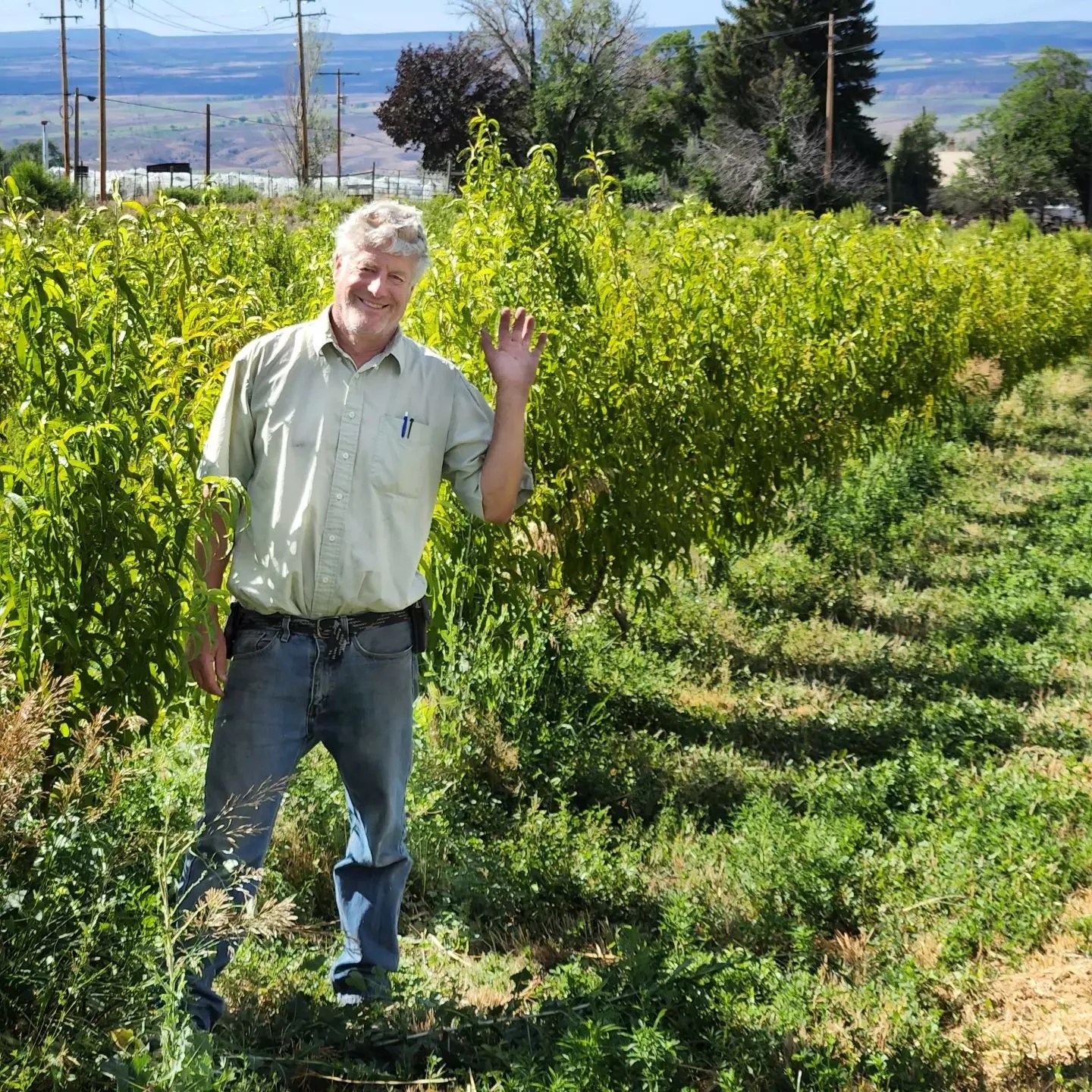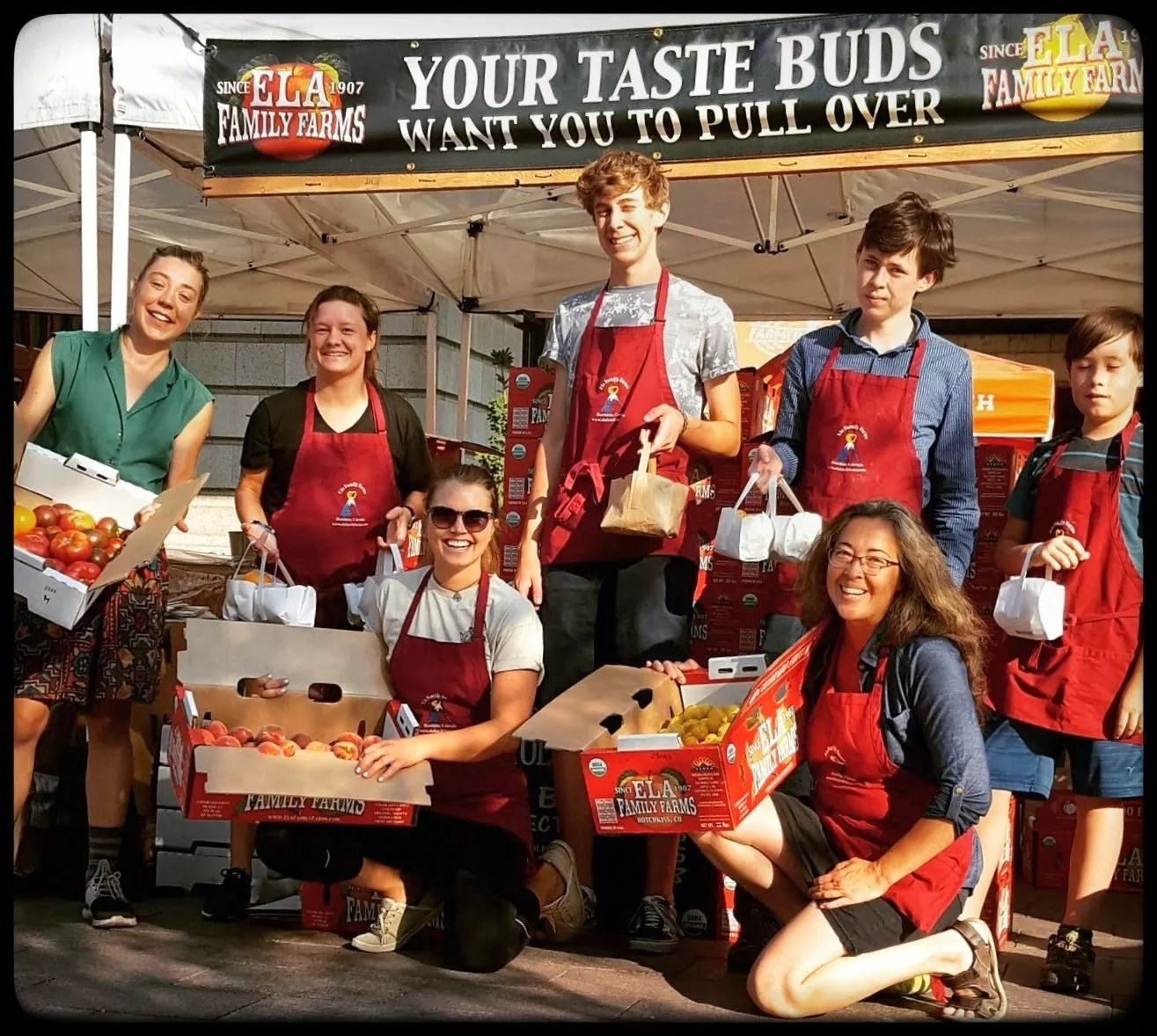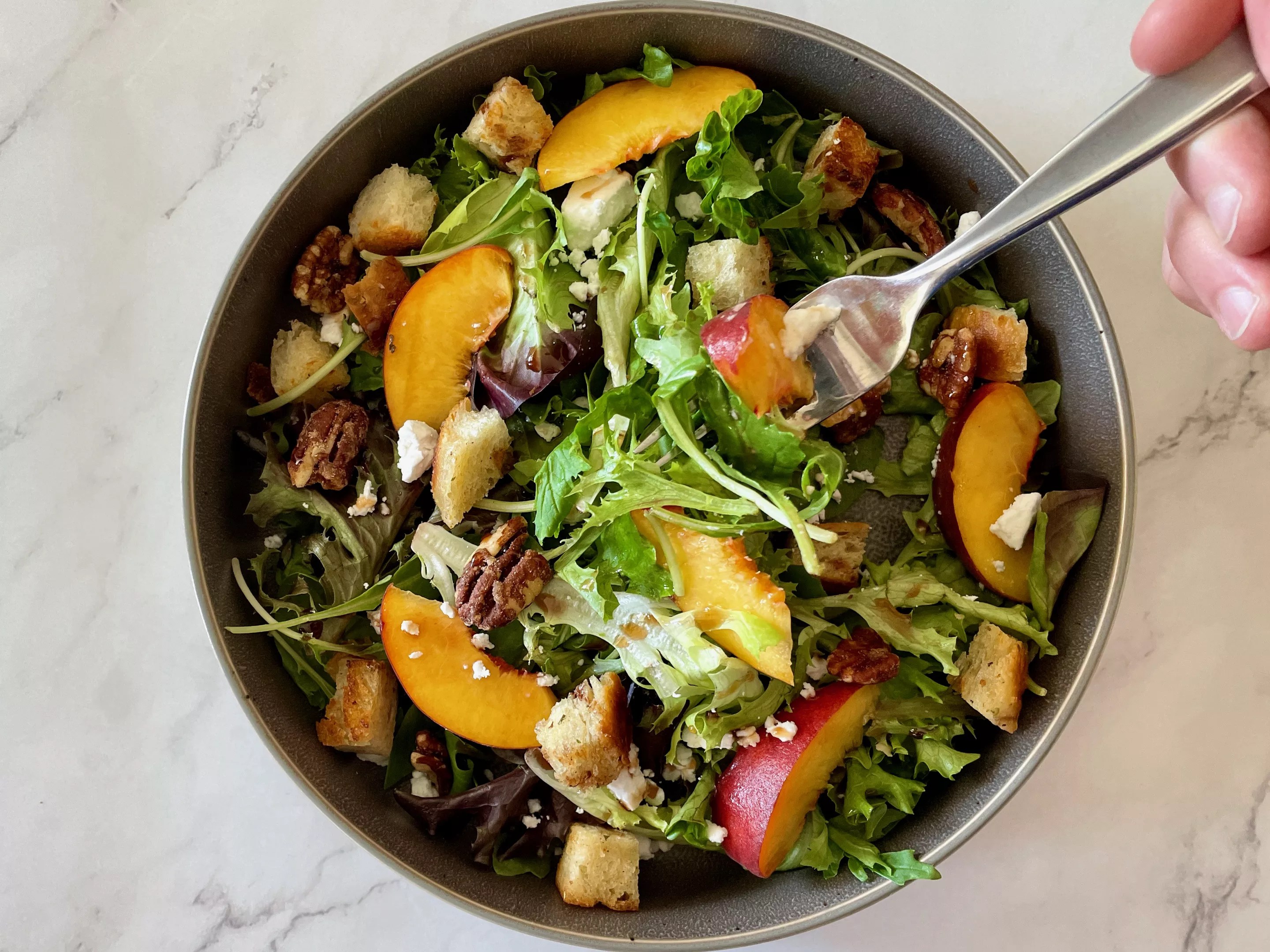
Ela Family Farms/Facebook

Audio By Carbonatix
It’s peak season for farmers’ markets. No matter your neighborhood, you can find local produce and handcrafted goodies near you. In Farmers’ Market Finds, recipe developer and freelance writer Ashlee Redger highlights some standout local farmers’ market vendors and dishes up a recipe using their goods.
Vendor: Ela Family Farms
Where to find it: Boulder, Longmont, Fort Collins, Golden and City Park farmers’ markets on Saturdays; Central Park and South Pearl Street farmers’ markets on Sundays
For more info: Visit elafamilyfarms.com
About the business: What does the end of summer taste like? Perhaps for you, it’s one last sweet watermelon, or thick slices of maroon-hued heirloom tomatoes on a BLT, or an ear of Olathe sweet corn slathered in butter. All of those are excellent answers, but in Colorado, there’s one late-season treasure that cannot be missed. When the dog days of summer have come to an end, the taste of sunshine is concentrated in a rosy, fuzzy treasure: local peaches.
Ela Family Farms has been tending to fruit orchards in Colorado for 115 years, growing peaches as well as apples, cherries, pears and plums. The operation started four generations ago, via a marriage between two fruit-growing families. It’s been passed down the matrilineal line, with family members planting trees in Boulder and Clifton near Grand Junction before settling in Hotchkiss in 1987.
History is woven through the family’s timeline. Family members acquired land in Clifton after World War I; in the 1920s, their fruit was shipped on iced freight train cars, while in the ’40s, they were unable to sell their produce in Denver because of gas rationing during World War II. One member even worked in a uranium mine in Utah around that time to pay off debts from the family’s first attempt at a fruit business, which was too small to compete with larger farms. The effort allowed the family to keep its orchards and avoid bankruptcy.
“We have farmed and sold and marketed every which way possible, probably,” says fourth-generation grower Steve Ela. He runs the farm now, having come back to it full-time in 1998 after receiving a master’s degree in soil science and water resources. Nowadays, Ela Family Farms does all of its own growing, marketing and selling in CSA programs and farmers’ markets across the state. It’s also branched out a little to include other produce items like heirloom tomatoes and rhubarb in addition to orchard fruits. “We’re really trying to do as much as we can ourselves so that we can control the quality and do it like we like to do it,” Ela affirms.

Steve Ela is the fourth generation to run the Ela Family Farms business.
Ela Family Farms/Facebook
The thoughtfulness and care with which the Ela Family Farms team approaches fruit-growing is evident. It has been certified organic since 2004 and has been named a Colorado State Environment Leader by the Colorado State Environmental Leadership Program for its commitment to sustainability. Steve Ela has served on the National Organic Standards Board for five years, and his partner, Regan Choi, has served on state health boards. Both are also involved in a variety of other coalitions, organizations and co-ops that further advocate for responsible agriculture.
The involvement of the family goes beyond farming to include supporting local communities. “It’s diversity of passion. We love to farm – we love what we do – but it’s also nice to think about other things and have that intellectual stimulation as well,” Ela explains.
Steve’s mother, Shirley, was a part of the Colorado Water Quality Commission. At age 98, she is still very much involved in the farm and can be seen around the offices many days, signing the crew’s paychecks. Steve’s dad, Bill, passed away in 2016, but spent his life as a Harvard-educated Colorado district court judge and was key in developing riverfront trails through Grand Junction. “We’ve grown up feeling like it’s a two-way street. We give, and people give back. That makes life a lot better,” Ela says.
Ela Family Farms aims for zero food waste, with a commercial kitchen on site where artisanal applesauce, jams and dried fruits are made. “What we can’t sell, we can put in a jar, and what we can’t put in a jar, we send off to our local pig farm. Everything we get to pick gets used,” Ela notes. Lucky pigs aside, the preserves are all made with as few ingredients as possible, including low amounts of sugar, in order to let the fresh-picked, ripe fruit flavor shine.

Ela Family Farms is at seven farmers’ market locations this year.
Ela Family Farms/Facebook
While the preserves are delicious, fresh fruit is really where Ela Family Farms excels. Don’t get tunnel vision for Palisade labels at the market, because Ela’s Hotchkiss-grown produce rivals the best of it. Peak peach season is upon us right now, and pears and apples will make their debut around Labor Day. This year’s harvest is a little lighter, as the orchards are still recuperating after a big freeze in October 2020; it killed off more than twenty acres of trees, so scoop up what you can while it’s available.
Mark your calendars for October, too, when fresh apple cider will be available.
How to use it:
Part of the Ela Family Farms mission is growing fruit that “tastes like it should and can.” What does that mean? First, think about eating a normal grocery store peach: It’s sorta sweet, kinda dry and often mealy. Maybe it’s too firm or overripe (or the worst, somehow both at once).
Now, think about what a peach should and can taste like: mouthwateringly sweet but not cloying, and juicy enough that it rolls down your wrist and chin as you take bites. The skin is tender, and the red fingers that cling to the pit aren’t tough or bitter; they’re perfectly tart to balance the rest. A peach like that deserves the spotlight.
Of course, slicing up your peach and savoring it bite by bite, or with a little splash of cream, is absolute bliss. If you get home and realize you’ve overestimated the number of peaches you can eat while standing over the sink in a week (no judgment), here are two ways to use them:

Slice up peaches and put them on a salad with goat cheese, toasted nuts and balsamic dressing.
Ashlee Redger
Peach, Balsamic and Goat Cheese Salad
Remember, the name of the game here is simplicity. First, choose your favorite leafy greens. Spring mix, spinach and arugula work particularly well. Alternately, use kale that’s been de-stemmed and massaged with a pinch of salt and olive oil for about a minute (this helps reduce some of the chewiness and bitterness of the kale). Top with fresh peach slices, then crumble goat cheese sparingly on top (vegan feta works well for non-dairy folks). Some fancy croutons and/or toasted pecans or walnuts are also a must. Dress to your liking with a balsamic vinaigrette or, even better, a homemade or store-bought balsamic glaze. Serve as a side, or add chicken or warm chickpeas to make it more hearty as a main.
Grilled Peaches
Slice your peach in half and remove the pit. Grill cut-side down on lightly oiled grates over medium-high heat until the peach has browned grill marks, about two to four minutes. You can either take it off the grill at this point (if you want it a little firmer) or grill the other side as well (if you want it a little softer). Spoon some of your favorite thick dairy product on a plate (use Greek yogurt or ricotta for a sweeter dessert or whipped feta for something a little savory) and top with a peach half. Once plated, there are plenty of options to top it off. Drizzle with balsamic glaze or honey (use one of BjÁ¶rn’s flavored honeys for an extra boost); sprinkle with granola; add torn pieces of prosciutto, or herbs like sliced basil, thyme or mint. To make it into a main for dinner, add grilled turkey or lamb meatballs.

Grilled peaches, pictured served on yogurt and topped with mint leaves, granola clusters and Bjorn’s vanilla bean-infused honey.
Ashlee Redger
Bonus farmers’ market finds: It’s still the season of summer produce abundance, but autumn is coming soon. Before it arrives, fill up your baskets with as many fruits and veggies as you can. Here’s what to look for:
- Precious soil-grown heirloom tomatoes are here for a few more weeks. If you’re running out of ways to eat them, try making a tart or galette.
- The first harvest of apples and pears is getting picked, and you may already see them arriving at the markets. Stock up on pie dough now so you’re ready for apple pie season.
- Grab a few buttery biscuits from Butter Moon Bake Co. at the City Park Farmers Market on Saturday for excellent egg breakfast sammies on Sunday.
- Haykin Family Cider is made in Aurora and offers tastes and bottles at the South Pearl Street Farmers Market. Grab one and keep it on hand for a dinner with friends or as a gift for the cider lover in your life.
Ela Family Farms is located in Hotchkiss, and its farmers’ market booth can be found at the Boulder, Longmont, Fort Collins, Golden and City Park farmers’ markets on Saturdays, and Central Park and South Pearl Street farmers’ markets on Sundays. For more information, visit elafamilyfarms.com.